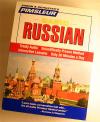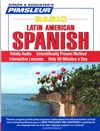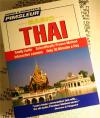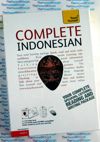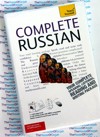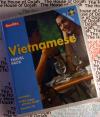Vocabulearn Polish - Level 1 -Vocabulary Builder
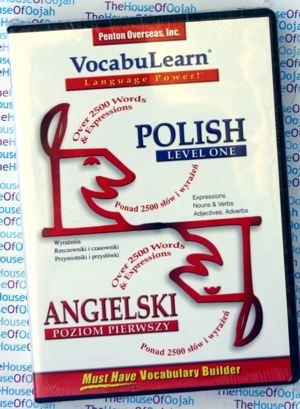
Vocabulearn PolishLevel 1 - Vocabulary BuilderGet Other Polish Language Learning Audio click here |
 |
Vocabulearn Polish - 4 Audio CDsBrand New (still shrink wrapped): 3 Hours on 4 CDs plus listening guide The One and Only Audio Foreign Language Vocabulary Builder Language learners know that after acquiring basic words, phrases, and grammar, expanding foreign language vocabulary is essential to developing the power to really communicate in the new language. VocabuLearn is unique in its ability to build a broad vocabulary. # Levels one contains the 2500 most frequently used words and phrases. About PolishPolish, an official language of Poland, has the largest number of speakers of any West Slavic language. Polish is spoken in a uniform manner through most of Poland, and has a regular orthography. The language developed indigenously and retains many ancient Slavic features of pronunciation and grammar. Although the Polish language was suppressed by occupying powers during some historical periods, a rich literature has nonetheless developed over the centuries, and many works by Polish authors are available in translations in English and other languages. Polish is mainly spoken in Poland. Poland is one of the most homogeneous European countries with regard to its mother tongue; nearly 97% of Poland's citizens declare Polish as their mother tongue, due to World War II, after which Poland was forced to change its borders, which resulted in various migrations (German expulsions, Operation Wisła). After the Second World War the previously Polish territories annexed by the USSR retained a large amount of the Polish population that was unwilling or unable to migrate toward the post-1945 Poland, and even today ethnic Poles constitute large minorities in Lithuania, Belarus, and Ukraine. Polish is by far the most widely used minority language in Lithuania's Vilnius County (26% of the population, according to the 2001 census results), and it is also present in other counties. In Ukraine, Polish is most often used in the Lviv and Lutsk regions. Western Belarus has an important Polish minority, especially in the Brest and Grodno regions. There are also significant numbers of Polish speakers in Argentina, Andorra, Australia, Austria, Azerbaijan, Belarus, Belgium, Brazil, Bulgaria, Canada, Czech Republic, Denmark, Estonia, Faroe Islands, Finland, France, Germany, Greece, Hungary, Israel, Iceland, Ireland, Italy, Kazakhstan, Latvia, Lebanon, Luxembourg, Mexico, The Netherlands, New Zealand, Norway, South Africa, Sweden, Peru, Romania, Russia, Serbia, Slovakia, Spain, Ukraine, UAE, the UK, Uruguay and the United States.In the United States, Polish Americans number more than 11 million but most of them cannot speak Polish fluently. According to the United States 2000 Census, 667,414 Americans of age 5 years and over reported Polish as the language spoken at home, which is about 1.4% of people who speak languages other than English or 0.25% of the U.S. population. The largest concentrations of Polish speakers reported in the census (over 50%) were found in three states: Illinois (185,749), New York (111,740) and New Jersey (74,663). In Canada, there is a signifcant Polish Canadian population and there are 242,885 speakers of Polish according to the most recent census in 2006 with a particular concentration in the city of Toronto, Ontario (91,810 speakers). The Polish language became far more homogeneous in the second half of the 20th century, in part due to the mass migration of several million Polish citizens from the eastern to the western part of the country after the east was annexed by the Soviet Union in 1939, during World War II. "Standard" Polish is still spoken somewhat differently in different regions of the country, although the differences between these broad "dialects" are slight. There is never any difficulty in mutual understanding, and non-native speakers are generally unable to distinguish among them easily. The differences are slight compared to different dialects of English, for example. The regional differences correspond mainly to old tribal divisions from around a thousand years ago; the most significant of these are in terms of numbers of speakers are Great Polish (spoken in the west), Lesser Polish (spoken in the south and southeast), Mazovian (Mazur) spoken throughout the central and eastern parts of the country, and Silesian spoken in the southwest. Mazovian shares some features with the Kashubian language (see below). The regional differences correspond mainly to old tribal divisions from around a thousand years ago; the most significant of these in terms of numbers of speakers are Greater Polish (spoken in the west), Lesser Polish (spoken in the south and southeast), Mazovian (Mazur) spoken throughout the central and eastern parts of the country, and Silesian language in the southwest. Mazovian shares some features with the Kashubian language (see below). Several speeches were often classified as dialects of the Polish language in the past, while in modern times they are more often referred to as separate languages. This is particularly true to Kashubian language, which until recently was considered a local variety of Polish language. Some authors in the 19th century (Shtritter, Linde, Wisniewski), preceding the works of Karskiy, suggested the Belarusian language, whether in the 19th century form or in the Medieval literary form, to be the dialect of Polish language. The concepts of Belarusian language not being a linguistical entity in its own right and of Belarusians not being a nation, were employed in times of the 1919-1920 Polish-Soviet war and, later, in the national policies of the Second Rzeczpospolita. Finally, some modern scholars argue that the Silesian language is in fact a separate speech. In the Polish census of 2002 over 56,000 people declared Silesian as their native language. |
Vocabulearn Polish - 4 Audio CDs |

 0 Items (Empty)
0 Items (Empty)
